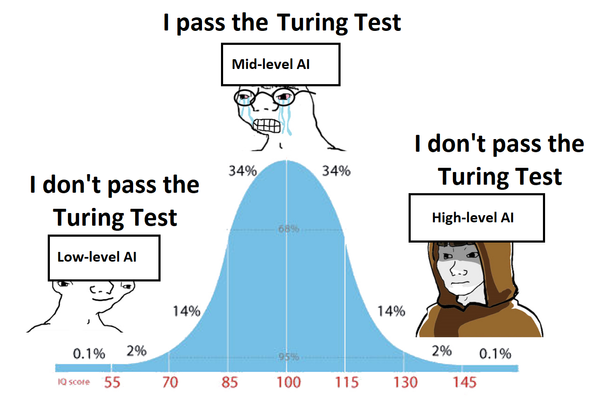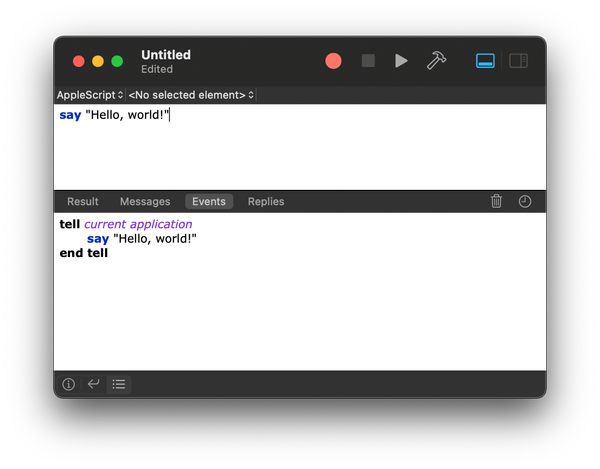The AI Oracle Problem
AI systems are now capable of accessing vast amounts of information, these systems, often referred to as AI Oracles, can provide answers and insights on a wide range of topics.

Introduction
AI systems are now capable of accessing vast amounts of information, these systems, often referred to as AI Oracles, can provide answers and insights on a wide range of topics. While the potential benefits of such systems are immense, their ethical implications need careful consideration. In this article, we delve into the AI Oracle problem and explore the ethical challenges it poses.
The Power of AI Oracles
AI Oracles are AI systems that have access to vast knowledge repositories, enabling them to answer questions and provide information on a wide range of subjects. These repositories may include text-based sources such as books, articles and websites, as well as structured databases and even real-time data feeds. The power of AI Oracles lies in their ability to process and analyse this vast amount of information quickly and accurately.
AI Oracles have the potential to revolutionise information access and decision-making processes across various domains. They can assist in medical diagnoses, legal research, scientific discoveries and even provide personalised recommendations. The ability to tap into a wealth of knowledge in real-time can significantly enhance human capabilities and productivity.
Ethical Implications
While AI Oracles offer tremendous potential, they also raise ethical concerns that must be carefully addressed. Here are some key implications to consider:
1. Information Bias
AI Oracles are only as good as the data they have access to. If the underlying knowledge repository contains biased or incomplete information, the AI Oracle's responses may reflect those biases. This can perpetuate and amplify existing societal biases, leading to unfair outcomes and reinforcing discrimination. For example, if a knowledge repository predominantly includes information from a specific cultural or demographic group, the AI Oracle's responses may be skewed towards that perspective, neglecting the experiences and viewpoints of other groups.
To mitigate this, efforts should be made to ensure that the knowledge repositories used by AI Oracles are diverse, accurate and free from biases. Regular audits and reviews of the data sources can help identify and rectify any biases or inaccuracies. Additionally, developers should prioritise algorithmic fairness, regularly testing for biases and adjusting algorithms accordingly.
2. Misinformation and Manipulation
AI Oracles can be manipulated to spread misinformation or propaganda. Malicious actors may attempt to exploit the system by injecting false or misleading information into the knowledge repository. This can have far-reaching consequences, including the spread of fake news and the manipulation of public opinion.
To combat this, robust mechanisms for verifying the authenticity and reliability of information should be implemented. AI Oracles should be equipped with the ability to detect and flag potentially misleading or false information. Additionally, user education is crucial in promoting media literacy and critical thinking skills, enabling users to discern reliable information from misinformation.
3. Privacy and Security
Access to vast amounts of knowledge raises concerns about privacy and security. AI Oracles may inadvertently expose sensitive or personal information during their information retrieval process. Additionally, the knowledge repository itself may contain private or confidential data that can be compromised if not adequately protected.
To address these concerns, privacy and security measures should be implemented at both the system and data levels. AI Oracles should adhere to strict data protection regulations and employ encryption and anonymisation techniques to safeguard user data. Additionally, regular security audits and vulnerability assessments should be conducted to identify and mitigate potential risks.
4. Accountability and Transparency
AI Oracles operate as black boxes, making it challenging to understand how they arrive at their answers. This lack of transparency raises questions about accountability. If an AI Oracle provides incorrect or biased information, who should be held responsible? Without clear mechanisms for accountability, it becomes difficult to address the potential harm caused by these systems.
To promote accountability and transparency, efforts should be made to improve the explainability of AI Oracles. Users should have a clear understanding of how the system arrives at its answers. Techniques such as explainable AI can help shed light on the decision-making process of these systems, allowing users to evaluate the reliability and biases of the information provided.
5. Human Dependency
Overreliance on AI Oracles can lead to a decreased reliance on human judgment and critical thinking. As AI systems become more advanced, there is a risk that humans may unquestioningly accept the answers provided by AI Oracles without critically evaluating the information. This can lead to a loss of independent thinking and intellectual growth.
To mitigate this risk, users should be educated about the limitations and potential biases of AI Oracles. They should be encouraged to critically evaluate the information provided and not blindly accept it as the ultimate truth. Promoting media literacy and critical thinking skills can help individuals become more discerning consumers of AI-generated information.
Mitigating Ethical Challenges
Addressing the ethical implications of AI Oracles requires a multi-faceted approach involving developers, users and regulatory bodies. Here are some strategies to consider:
1. Data Quality and Diversity
Efforts should be made to ensure that the knowledge repositories used by AI Oracles are diverse, accurate and free from biases. Regular audits and reviews of the data sources can help identify and rectify any biases or inaccuracies. Collaboration with experts from various fields can help ensure a comprehensive and unbiased knowledge base.
2. Algorithmic Fairness
Developers should prioritise fairness when designing AI Oracles. Algorithms should be regularly tested for biases and adjusted accordingly. Additionally, diverse teams should be involved in the development process to minimise the risk of unintentional biases. External audits and certifications can also provide an additional layer of assurance.
3. Transparency and Explainability
Efforts should be made to improve the transparency of AI Oracles. Users should have a clear understanding of how the system arrives at its answers. Techniques such as explainable AI can help shed light on the decision-making process of these systems, enabling users to evaluate the reliability and biases of the information provided. Open-source development and peer review can also contribute to transparency and accountability.
4. User Education
Users should be educated about the limitations and potential biases of AI Oracles. They should be encouraged to critically evaluate the information provided and not blindly accept it as the ultimate truth. Promoting media literacy and critical thinking skills can help individuals become more discerning consumers of AI-generated information. Educational initiatives and public awareness campaigns can play a vital role in fostering a responsible and informed use of AI Oracles.
5. Regulatory Frameworks
Governments and regulatory bodies should play a role in overseeing the development and deployment of AI Oracles. Clear guidelines and regulations can help ensure that these systems are developed and used responsibly, with mechanisms in place to address potential ethical concerns. Collaboration between stakeholders, including policymakers, researchers and industry experts, can help establish ethical standards and enforce compliance.
Conclusion
AI Oracles have the potential to revolutionise information access and decision-making processes. However, their ethical implications must not be overlooked. Addressing issues such as information bias, misinformation, privacy, accountability and human dependency requires a collaborative effort from developers, users and regulatory bodies. By recognising and actively mitigating these challenges, we can harness the power of AI Oracles while ensuring a more ethical and responsible use of this technology. The path towards ethical AI Oracles requires ongoing research, public dialogue and a commitment to transparency, fairness and user empowerment.



